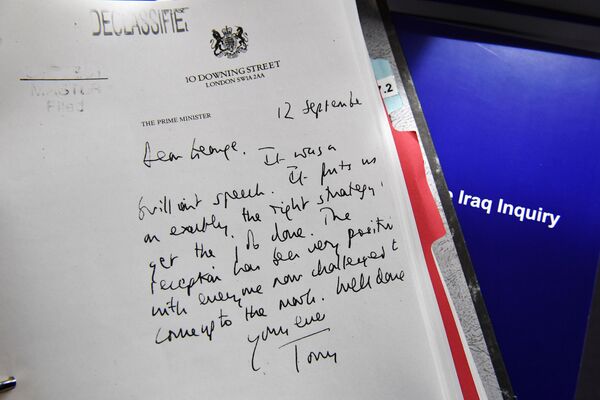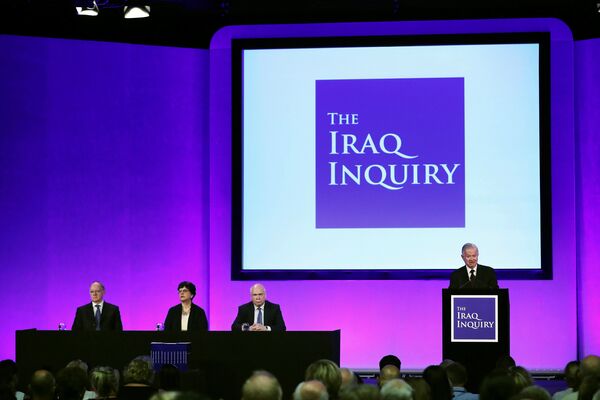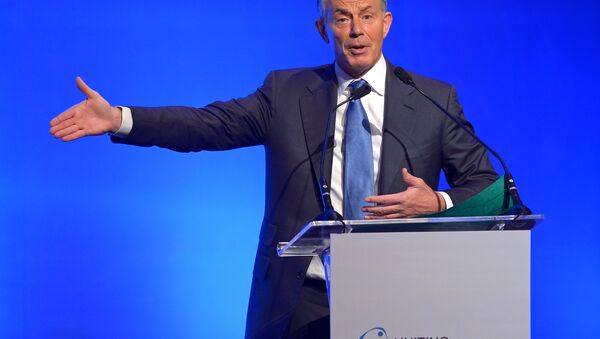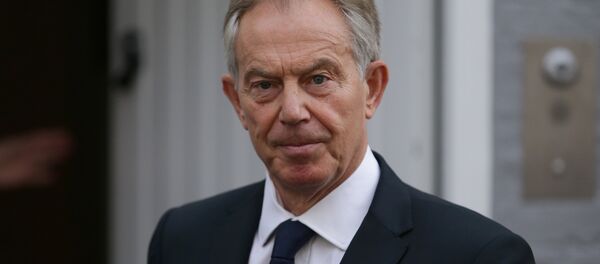After leaving office, he set up Tony Blair Associates as a commercial operation under which he advised foreign governments. He has come in for severe criticism for amassing a huge fortune by trading on his position as a former prime minister and charging enormous fees for advising companies and regimes across the globe.
It was revealed in 2014 that his company had signed a secret contract with Saudi oil company PetroSaudi worth over US$53,000 (£41,000) a month and two percent commission on any deals he helped secure.
Blair was accused of "insatiable greed" by the Stop the War Coalition in the UK after his deal with Saudi Arabia was exposed. At the time he was Middle East envoy for the United Nations, European Union, United States, and Russia, which many saw as a serious conflict of interest.
#TonyBlair giving up business for #charity work? Crisis of conscience? Or has he just discovered a better earner?
— Matt McAvoy (@Matt_McAvoy) 21 September 2016
Iraq War Damnation
Blair's government, in the run-up to the invasion of Iraq in 2003, faced down one of the biggest popular uprisings Britain had seen against going to war against Saddam Hussein's regime. Blair sided with the US President, George W. Bush's view that the Iraqi dictator had weapons of mass destruction that could be used against British targets.
The Iraq War and its aftermath proved highly controversial for Blair, as he was accused of war crimes in toppling Hussein's regime and for having no exit strategy, leaving the country in turmoil.

In the final report, by Sir John Chilcot, into the run-up to the Iraq War, Blair was savaged. He said the decision to go to war was based on flawed intelligence and its legality was unclear.
The military and the civil service both asked for more clarity on whether force would be legal. Blair's Attorney General, Lord Goldsmith then advised that the "better view" was that there was, on balance, a secure legal basis for military action without a further Security Council resolution.
Will it be easier for a camel to go through a needle's eye, than for #TonyBlair to earn forgiveness of British/Iraqi people? https://t.co/lyLfr5o7Zq
— Olufemi Okeniyi (@femiokes) 20 September 2016
Chilcot concluded: "The precise basis on which Mr Blair made that decision is not clear. Given the gravity of the decision, Lord Goldsmith should have been asked to provide written advice explaining how, in the absence of a majority in the Security Council, Mr Blair could take that decision."
Chilcot's final condemnation of Blair was clear — although he did not name him. "It is now clear that policy on Iraq was made on the basis of flawed intelligence and assessments. They were not challenged, and they should have been."

A statement on the Office of Tony Blair website now says: "We will close down Tony Blair Associates and wind up the Firerush and Windrush structures. I will retain a small number of personal consultancies for my income, but 80 percent of my time will be pro bono on the Not For Profit side."



